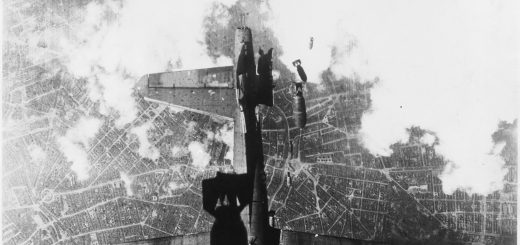The Nature of Nature

It is a strange and disorienting panorama that Rabbi E. E. Dessler, the celebrated Jewish thinker (1892-1953) asks us to ponder: a world where the dead routinely rise from their graves but no grain or vegetation has ever grown.
The thought experiment continues with the sudden appearance of a man who procures a seed, something never seen before in this bizarre universe, and plants it in the ground. The inhabitants regard the act as no different from burying a stone, and are flabbergasted when, several days later, a sprout pierces the soil where the seed had been consigned, and eventually develops into a full-fledged plant, bearing – most astonishing of all – seeds of its own!
Notes Rabbi Dessler, there is no inherent difference between nature and what we call the miraculous. We simply use the former word “nature” for the miracles to which we are accustomed, and the latter one for those we have not before experienced. All there is, in the end, is G-d’s will.
It is a thought poetically rendered by Emerson, who wrote: “If the stars should appear one night in a thousand years, how would men believe and adore…”
A thought, in fact, that subtly informed famed physicist Paul Davies’ recent op-ed in The New York Times, where he wrote that “the very notion of physical law is a theological one.”
And it is a thought, too, that, according to Rabbi Dovid Feinstein, the revered Rosh Yeshiva, or dean, of Mesivta Tifereth Jerusalem on Manhattan’s Lower East Side, has pertinence to Chanukah.
The supernatural nature of nature lies at the heart of the answer he suggests for one of the most famous questions in the canon of Jewish religious law, posed in the 1500s by the author of the authoritative Code of Jewish Law, the Shulchan Aruch, Rabbi Yosef Karo: Why, if oil sufficient for one day was discovered in Jerusalem’s Holy Temple when the Macabees reclaimed it from Seleucid control, is Chanuka eight days long? True, that is how long the candles burned, allowing the priests to prepare new, uncontaminated oil. But was not one of those eight days simply the day for which the found oil sufficed, and thus not itself a miracle-day worthy of commemoration?
Suggests Rabbi Feinstein: Seven of Chanukah’s days commemorate the miracle that, in the time of the Maccabees, the candelabrum’s flames burned without oil. The eighth commemorates the miracle of the fact that oil burns at all.
The suggestion pithily echoes an account in the Talmud (Ta’anit, 25a), in which the daughter of the Talmudic sage Rabbi Chanina ben Dosa realized shortly before the Sabbath that she had accidentally poured vinegar instead of oil into the Sabbath lamps, and began to panic. Rabbi Chanina, a man who vividly perceived G-d’s hand in all and thus particularly merited what most people would call miracles, reassured her. “The One Who commanded oil to burn,” he said, “can command vinegar [as well] to burn.”
There is, in fact, one day of Chanukah’s eight that is set apart from the others, designated with a special appellation. The final day of the holiday – this year beginning with the candle-lighting on the night of Tuesday, December 11 and continuing through the next day – is known as “Zos Chanukah,” after the Torah passage beginning “Zos chanukas hamizbe’ach” (“This is the dedication of the altar”) read in the synagogue that day.
The Jewish mystical sources consider that day to be the final reverberation of the Days of Awe marked many weeks earlier. Although Rosh Hashana was the year’s day of judgment and Yom Kippur was the culmination of the days of repentance, later “time-stones” of the period of G-d’s judgment of our actions are cited as well. One is Hoshana Rabba, the last day of Sukkot. And the final one, according to the sources, is “Zos Chanukah.”
It would indeed seem to be a fitting day for thinking hard about the “supernature” in nature, the miraculous in the seemingly mundane. For what is what we call a miracle if not a more-clear-than-usual manifestation of G-d? And what are the Days of Awe if not a time when He is “close” to us, when G-d-consciousness is at front and center?
And so, perhaps the final day of Chanukah presents us with a singular opportunity to ponder how, just as the ubiquity and predictability of nature can mislead us, allowing us to forget that all is, in truth, G-d’s will, so too can the weeks elapsed since the late summer Days of Awe lull us into a state of unmindfulness regarding the import of our actions.
If so, the final night of Chanukah might be a particularly apt time to gaze at the eight flames leaking enlightenment into the world and, as we prepare to head into the dismal darkness of what some might consider a “G-d-forsaken winter,” know that, still and all, as always, “His glory fills the universe.”




Some new things or events can still be understood within the framework of previously accepted ideas about “physical law”. This is a middle category. The seed example would fall into this category if an investigator could observe that the seed’s strange behavior violated no known “law”.
In fact, it’s very easy for people to explain away or ignore pesky observations to avoid challenges to their previous concepts. This has been attempted even in connection with full-blown miracles documented in the Torah, like the Mabul. The builders of the Tower of Babel thought there was a periodicity to great floods. Modern writers, even some well-known Jewish ones, think the Mabul and other events like it are capable of naturalistic interpretation.
Regarding my comment of 1:16 PM:
The “previous concepts” I referred to are man-made ones.
I regard the concepts of the Torah itself to be above challenge on any grounds. Those who differ are invited to state if they believe they are Orthodox Jews or not.
Nature is God’s way of acting in ways that we can understand.
The challenge with familiar wonders is that once they become familiar, one wonders how things could be otherwise.
Unfortunately,cynicism is still rampant that tries and darkens any sense of awe. From the respected website Slate: http://slate.com/id/2179045/
With all due respect, Reb Dovid Feinstein’s answer is a well-known answer said in the name of the Alter of Kelm.
The Emerson quote is nice, but absent Rav Dessler’s God to guide us through revelation, the more likely outcome of nightfall “once in a thousand years” would be mass hysteria, madness, and possibly death through shock.
Isaac Asimov wrote a short story on this idea, summarized here.
Steg (a rabbinical student at YCT) has a nice post on commenter Noam’s idea, on both Torah and Nature teaching us about God and His relationship to the universe.
Thank you for this beautiful post. Not only does it give us a much-needed reminder to observe the wonder that is all around us, but it gives those of us who are not Jewish some fascinating insights into Chanukah. Thank you!